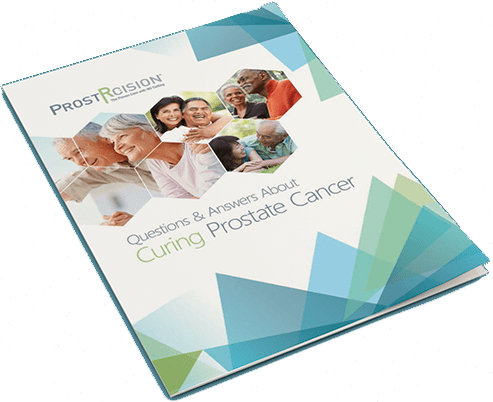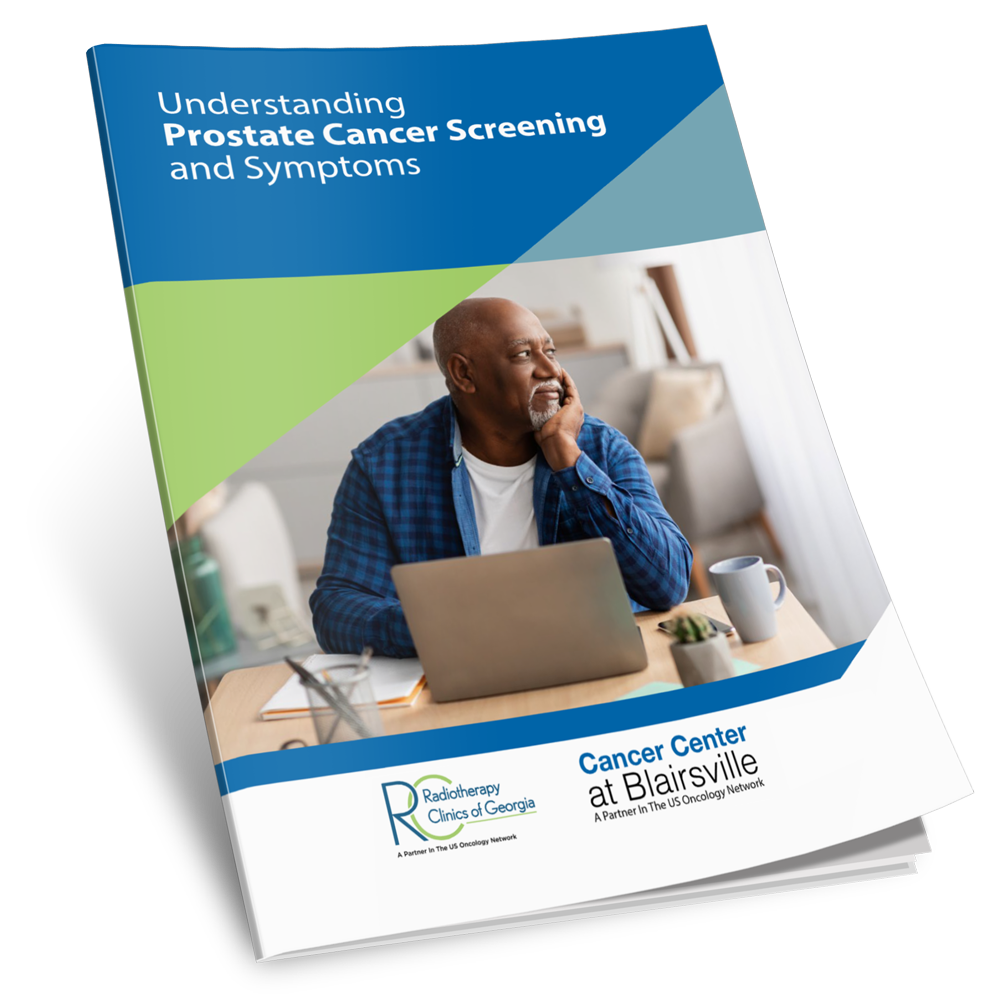Whether you have prostate cancer or not, it’s good to understand more about who is at risk, how to screen for it, and the likelihood of the cancer spreading or returning after treatment is complete.
Keep reading, for helpful information about prostate cancer. If you’d like to talk to one of our prostate cancer specialists in northeast Georgia, request a consultation at a location most convenient for you.

Make an informed prostate cancer treatment decision. Our 40-page, comprehensive guidebook provides answers to our most frequently asked questions from men diagnosed with prostate cancer, and compares various treatment methods, cure rates and side effects. Our team can also connect you with one of our oncologists at no cost.
There are a lot of questions we’re asked every day. And there are no silly questions! Read through our frequently asked questions and feel free to keep a list of questions you’d like to ask the oncologist during your first appointment.
What should you look for and when should you have tests run to check for the development of prostate cancer?
While age is the primary risk factor for developing prostate cancer, there are other things you should be aware of that can increase your risk.
A prostate cancer screening test (digital rectal exam or PSA blood test) will indicate whether a biopsy of the prostate should be done. Based on the results of the biopsy, a Gleason score is determined that will help your oncologist decide whether the prostate cancer is fast or slow-growing.
After the biopsy, there may be some additional tests needed to see if the cancer has spread to other areas of the body. Based on those results, a stage is assigned and treatment options are planned.
Understanding what this is can help you understand the types of treatments recommended. See what this is and why it’s important.
If prostate cancer returns after it’s been treated, this is a recurrence. Different treatments are likely to be used.

It’s important to have a clear understanding of when you need to be screened for prostate cancer as well as understand the symptoms so you can be an active advocate for your health. Download our free guide to find out the symptoms you should be aware of as well as review the prostate cancer screening recommendations.
Quickly and efficiently build the materials you need to support your inbound marketing strategy. Drag and drop building blocks including testimonials, forms, calls-to-action, and more.